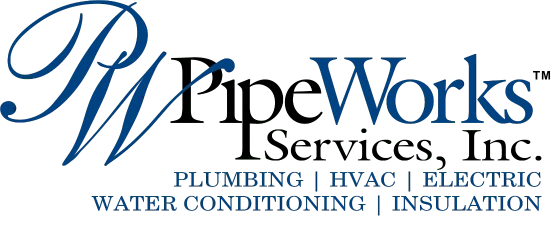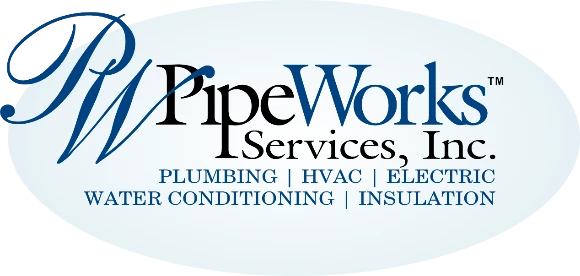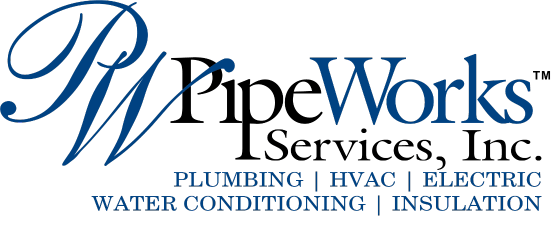Springtime in northern and central New Jersey can be beautiful, but it’s also a difficult season for allergy sufferers. Your exposure to pollen and pollution outdoors can make you retreat inside for relief. However, many homes have poor indoor air quality (IAQ), worsening allergen exposure. Common indoor allergens include dust, dust mites, pet dander and mold spores. Here are several HVAC tips that can help you reduce your exposure this spring.
Changing Your HVAC Filter
You need to inspect your HVAC filter frequently and change or clean it every 30 to 90 days. If you’re prone to allergy symptoms, doing these things is especially important. Check to see if light passes through the filter. If it doesn’t, a buildup of debris can lead to a decrease in indoor air quality. Also, look for large clumps of particulate or physical damage to the filter.
Upgrading Your HVAC Filter
Many types of HVAC filters are available. Filters usually feature a minimum efficiency reporting value (MERV) rating. A high MERV rating means that more particulates are trapped by that filter than one with a lower rating. However, high-rated MERV filters can result in too much airflow restriction in your HVAC system. This can lead to heating and cooling equipment issues. Most residential HVAC systems can handle a MERV rating between 8 and 13. Refer to the owner’s manual for your specific unit to see what’s recommended, or call our team for assistance.
Different types of filter material are used to provide excellent filtration. Standard pleated fiberglass filters are effective but often only trap large particulates. You can combine traditional filtration with activated carbon to remove volatile organic compounds (VOCs) and odors from your indoor air. This is a great filter option for homes with pets and those with people who smoke indoors.
Running Your HVAC System
Consider the type of allergens in your home. If you’re unsure what you’re dealing with, an IAQ assessment can provide you with detailed information. In the spring, it’s likely that some amount of pollen is making its way indoors. You can cut back on this exposure by keeping windows and doors closed and turning on your HVAC system to keep your home comfortable. Ventilation is important, so if you like to open windows and doors, do so in the very early morning or late at night when pollen levels are lowest.
To minimize overuse of your heating and cooling equipment, program a schedule into your thermostat. You can run your HVAC system minimally while you’re away for the day, adjusting to a more comfortable temperature as you arrive home.
Upgrade to a Smart Thermostat
Smart thermostats provide several benefits that can help reduce your exposure to spring allergens. We discussed using a schedule for your heating and cooling system. You can adjust this schedule remotely using a smart thermostat paired with your tablet or smartphone. Your thermostat may even provide you with suggestions that will improve your indoor air quality and boost system efficiency.
Many smart thermostats have built-in air quality sensors. Based on the data collected, you can receive notifications when there are high levels of allergens or pollutants in your home. If you have air filtration equipment in place, you can use these devices to improve your IAQ.
Installing a Whole-House Filtration Device
Many homeowners use portable air filtration devices to remove allergens from the air. However, portable models can cover only so much square footage at one time. You can have our team install a whole-house air purifier onto your HVAC system. As air passes through your heating and cooling equipment, it will pass through enhanced filtration as well. Many of these units use high-efficiency particulate air (HEPA) filters. These filters can remove as much as 99.97% of the particulate matter in your indoor air.
Make to have your whole-home filtration equipment routinely inspected and maintained by our team. We can clean interior components of your equipment and make minor repairs to ensure efficiency and effectiveness.
Controlling Indoor Humidity Levels
We often experience a lot of rain in the springtime, and this raises the relative humidity in our homes. When relative humidity is higher than 50%, it’s common for more particulate matter to circulate in your indoor air, as humid air holds on to more particulates. You can address high levels of moisture in your home by using a whole-home dehumidifier. This equipment is installed onto your HVAC system to address indoor humidity. This is more effective than using a portable dehumidifier that you need to move from one room to another.
Ductwork Maintenance and Service
Your ductwork plays an important role in limiting your allergen exposure. A tightly sealed system of ductwork allows conditioned and filtered air to move to different living spaces in your home. If your ductwork is riddled with cracks and gaps, this can allow allergens to enter your ductwork and circulate through your home. This can also lead to an accumulation of particulate matter on the interior components of your HVAC equipment, leading to strain and malfunctions.
We recommend having your ductwork inspected every three to five years. You should also periodically schedule a duct sealing. This process seals up any holes, cracks or damage that are present in your ducting. A duct cleaning every three to five years can remove particulate matter that has accumulated. If you or someone in your home suffers from allergies, consider a more frequent duct cleaning schedule.
Using Ceiling Fans for Circulation
In addition to running your HVAC system, using ceiling fans can help promote proper ventilation and circulation of air inside your home. Your ceiling fans should move in a counterclockwise direction in the summer to bring cool air downwards. Switch the fans’ direction to clockwise in the winter to bring warm air back down.
Installation of Ventilation Equipment
You can have ventilation equipment installed in your home to help exhaust allergens and contaminants outside. An energy recovery ventilator or heat recovery ventilator filters out allergens while bringing in fresh air from the outdoors. This can help reduce the amount of time that you need to run your HVAC system, lowering your monthly energy bills.
Use the exhaust fans in your kitchen and bathrooms when you’re cooking, cleaning or bathing. This helps remove moisture and contaminants.
UV Light Sanitation Equipment
You can have a UV light installed onto your HVAC system to remove bacteria, viruses and other pathogens from your indoor air. By exposing these things to UV-C light, you damage their cellular structure and render them harmless. UV lights also work to destroy mold spores, which can be a major allergy trigger.
Pipe Works Services is available to help homeowners in the northern and central New Jersey areas maintain healthy and comfortable indoor air quality during the spring and beyond. We can install whole-home filtration equipment to reduce the presence of allergens and other indoor contaminants. Routine maintenance for your HVAC system can also improve your IAQ. We offer an Advantage Program to make routine maintenance and service more affordable and convenient.
Contact our team at Pipe Works Services today for assistance in Chatham, NJ and the surrounding areas.





